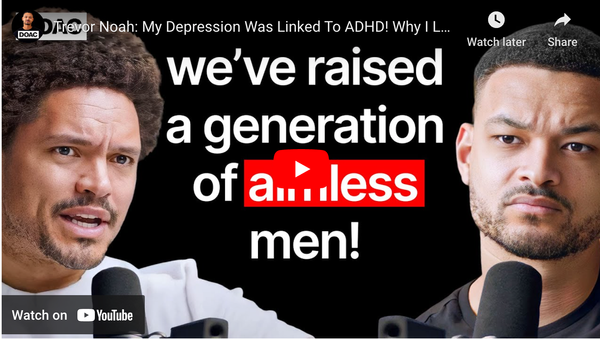MGZ-01: Strengths of Fluctuating Emotions
“I’m thirty years old and have been married four years. Some days I feel ecstatic to be married to Mara. But other days the spark isn’t as strong. The sexual abuse causes me to question my masculinity and attraction.”

Another workshop has come and gone. It was another stimulating adventure for many of us, myself included. I hope that we really did justice to parse out some basic the questions asked concerning masculinity and gender attraction. Trust me there is more, however we had to make a wise decision and determine the amount that we could cover without derailing the other agenda topics participants wanted to work through.
Let’s talk a little bit about fluctuating emotions. Often times after a workshop our emotions hit some high and lows especially around the area of masculinity and sexuality. Why? Because we are finally talking about them and bringing them to the surface. This can be productive or unproductive depending on how we respond to it. Let me share a real example with you from a male survivor we will call James.
“I’m thirty years old and have been married four years. Some days I feel ecstatic to be married to Mara. But other days the spark isn’t as strong. The sexual abuse causes me to question my masculinity and attraction.” There’s no question about my commitment. I love her and am resolved to stay faithful to her and the marriage no matter how much my feelings fluctuate. But I wish they’d grow more consistently positive; these mixed emotions are driving me nuts. “Here’s the weirdest part, most of the time I have mixed emotions about marriage itself. I’m delighted to finally be married and grateful for its many benefits. Yet I also have these feelings to held and accepted by a male figure. I have these mixed feelings go on within me at the same time. Recently a friend called my attitude schizophrenic, and that got me worried."

How can you find strength in this weakness of fluctuating emotions? Is there a strength or positive side to this?
One helpful trait for survival is the ability to live naturally with different emotions. This capacity enables you to be flexible, to adjust successfully to unwelcome circumstances, and to respond to the demands of emergencies. Didn't expect that answer? It's a strength in what seems to be a weakness. Historically, we have not viewed the capacity for fluctuating emotions as a strength, but as a detriment. However, the reality is that we are often ambivalent in our feelings. We hate the abuser who perpetrated and violated us but may have feelings of love at the same time because he or she was a family member. Yeah, it sounds whacked, but it’s true. Having fluctuating emotions doesn’t automatically mean that one is emotionally unstable.
Most of us, if we’re honest, experience fluctuating emotions and mood swings in many areas of life. We may be too quick to judge or berate ourselves for this inclination. We may wonder if we’re mentally unbalanced as we respond sporadically to the ambivalent feelings. Let’s share a different perspective.
What's Beneficial About Fluctuating Emotions?
Emotional flexibility. The capacity for empathy. Empathy is the ability to put myself in another’s shoes and identify with that person’s feelings. No quality contributes more to my ability to share and love others. Empathy enables me to be open myself to someone’s hurts, needs, vulnerabilities while extending genuine help. Empathy enhances my own success immensely also, for it sharpens my judgment about how best to approach others for help. In healing empathy is a vital survival skill.

The ability to own different feelings simultaneously strengthens our potential for being empathetic, and for loving others effectively. The ongoing need we have for expressing empathy suggests that our goal shouldn’t be to eliminate the experience of mixed emotions, but to channel the capacity for them in the best possible way. For example, in James’ case instead of being weirded out when another survivor at the workshop shares having those feelings of attraction, he can empathize, relate and listen more effectively, instead of tuning out. Feelings are still feelings, but it’s what we do with them and how we respond to them that is the true test.
The contents of the website, newsletters, emails, courses, or posts are for educational informational purposes only. The content is not intended to be a substitute for professional mental health advice, diagnosis, or treatment. Always seek the advice of your mental health professional or other qualified health provider with any questions you may have regarding your condition. © 2001 - 2030 The Male Survivor's Journey.com is produced by Gray Matter Coaching Service LLC. Sacramento, CA



